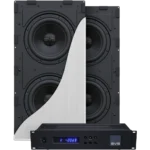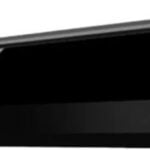Andy_Steb
Stunt Coordinator
- Joined
- Apr 9, 2003
- Messages
- 64
For piece of mind, you plug all components in separate surge protectors on dedicated outlets.
If you want to truly protect yourself from lightning, contact Allstate or State Farm. My house was hit, two computers, one monitor, one router, two TVs, one alarm system, one DVD player, one VCR, one Garage door opener, one subwoofer, stainless steel braided hoses were actually welded to the back of washing machine and all the telephones on the entire block were fried.
So you can say I was protected. Check your insurance to see if you have a full replacement policy, or a value of property policy.
If a high current surge has no problem jumping several thousand feet from the sky the earth with no wires, it should have no problem jumping a fraction of a millimeters across your surge protector.
A surge protector to me seems a lot like an extended warranty. Has anyone on this forum received money from the $50,000 guarantee from manufacturers.
If you want to truly protect yourself from lightning, contact Allstate or State Farm. My house was hit, two computers, one monitor, one router, two TVs, one alarm system, one DVD player, one VCR, one Garage door opener, one subwoofer, stainless steel braided hoses were actually welded to the back of washing machine and all the telephones on the entire block were fried.
So you can say I was protected. Check your insurance to see if you have a full replacement policy, or a value of property policy.
If a high current surge has no problem jumping several thousand feet from the sky the earth with no wires, it should have no problem jumping a fraction of a millimeters across your surge protector.
A surge protector to me seems a lot like an extended warranty. Has anyone on this forum received money from the $50,000 guarantee from manufacturers.





